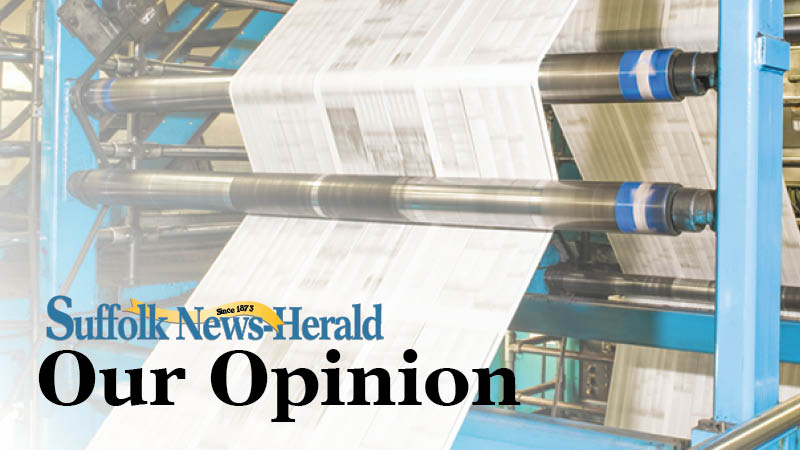Principle before partisanship
Published 10:46 pm Friday, February 22, 2013
Washington politicians could learn a lot from what’s going on down Interstate 95 in Richmond.
The General Assembly’s bipartisan agreement Friday on a long-overdue transportation funding solution for Virginia proves that no political task is too great, no issue too thorny if leaders put the common good ahead of party politics.
Republicans and Democrats joined forces in the House of Delegates to pass a five-year, $3.5-billion program of highway maintenance and construction that stands to end decades of gridlock during which the commonwealth’s highway infrastructure has crumbled. The Senate did not take up the bill immediately, but there are encouraging signs pointing toward passage by a similar bipartisan coalition in that chamber.
Republican Gov. Bob McDonnell got the ball rolling and deserves major credit for the ultimate resolution, even though the final package was a far cry from what he originally proposed. Delegate S. Chris Jones, whose 76th district encompasses Suffolk, also deserves credit, as he was instrumental in developing the compromise presented to both houses of the Virginia legislature and now awaiting Senate approval.
McDonnell wanted to do away with the state’s 17.5-cent-per-gallon gas tax in favor of a small increase in the general sales tax.
The bill passed by the House on Friday — and almost certain to be signed by McDonnell if it clears the Senate — would replace the retail gas tax with a 3.5-percent wholesale gas tax and a 6-percent tax on diesel, and it would raise the general sales tax from 5 percent to 5.3 percent. The title tax on vehicle purchases would rise to 4.3 percent from the current 3 percent. Owners of hybrids and other alternative-fuel vehicles would pay a $100 annual registration fee.
Those are not the details McDonnell wanted, but he is smart enough to not make perfection the enemy of good.
In fact, McDonnell probably knew all along the final package would look very different from what he proposed. His job as chief executive was to put the transportation issue at the forefront and throw the full weight of the executive branch behind a solution of some sort.
Governors before him have lacked either the political courage or the persuasiveness to make something happen. McDonnell succeeded where they failed, and even though he alienated some hardcore conservatives who disdain tax increases of any kind, most Virginians will remember fondly both the governor and the lawmakers of each party who put principle before partisanship.
Washington needs similar statesmanship.



